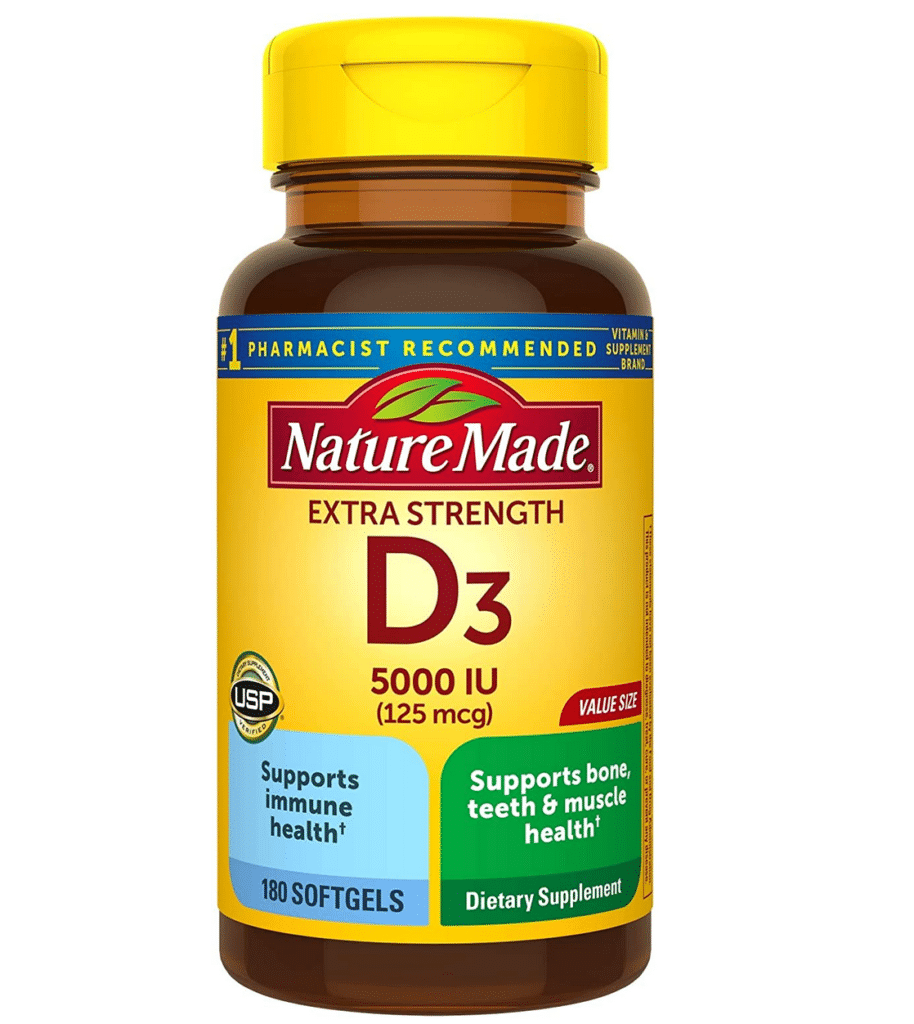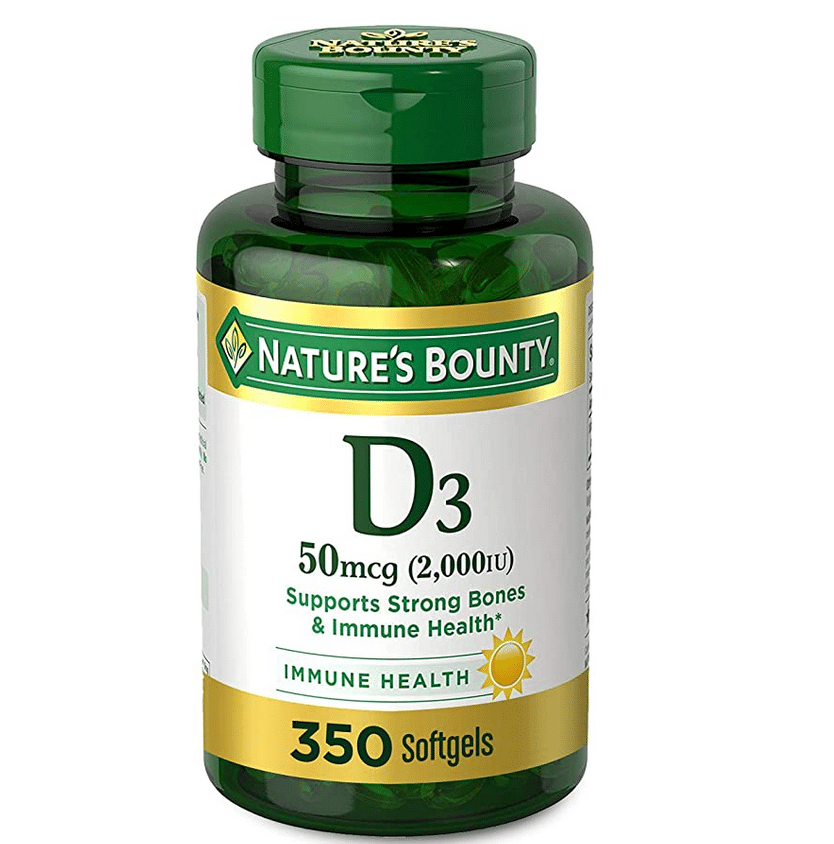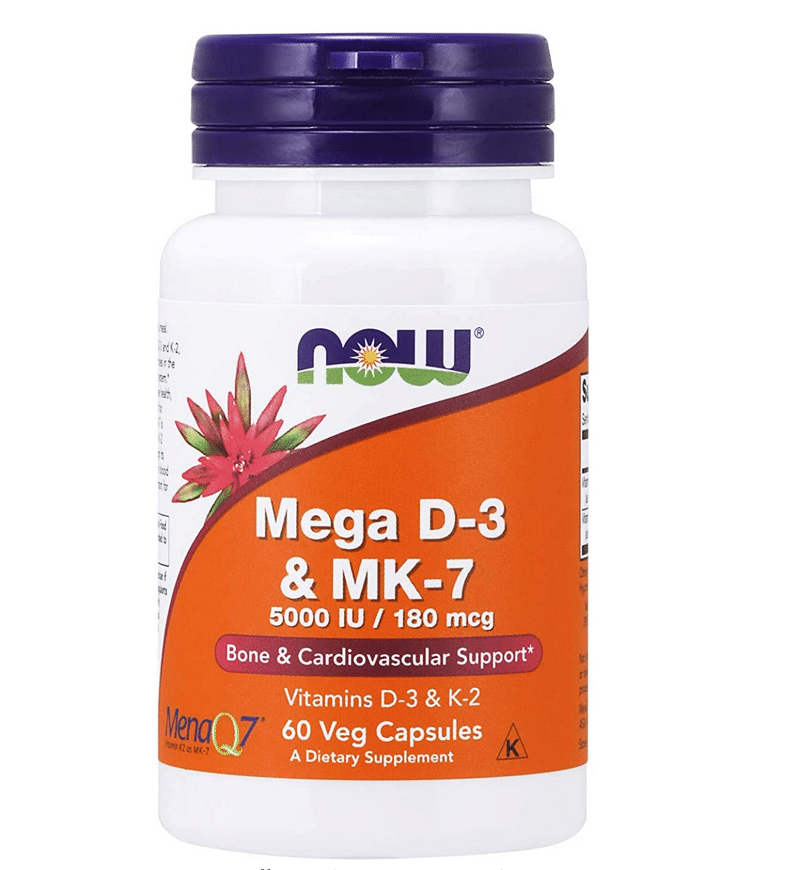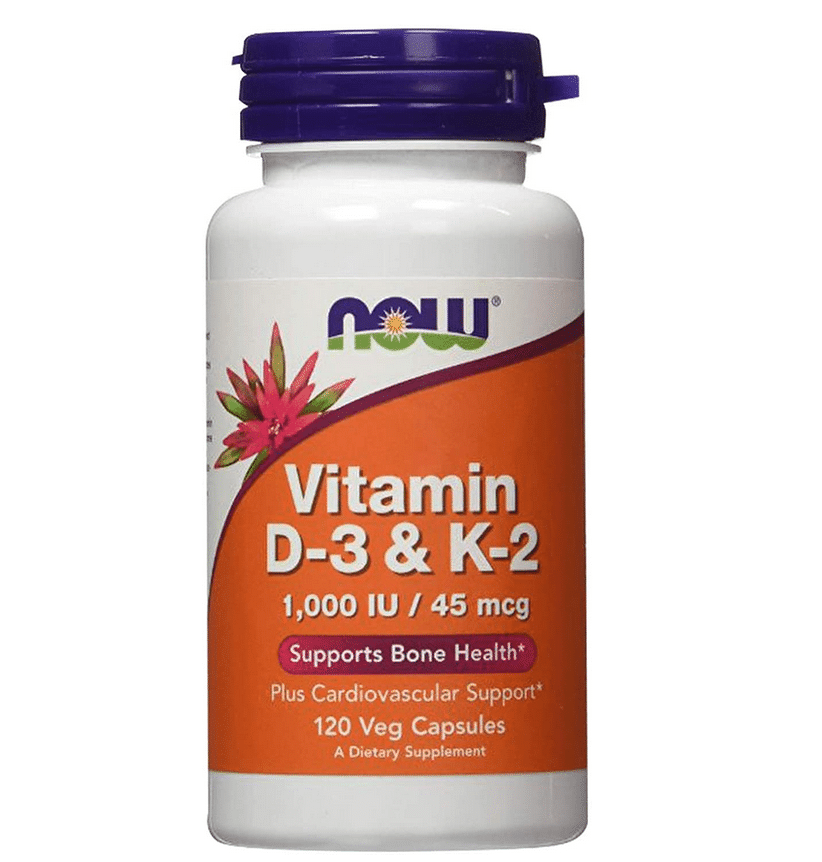
Most supplements are just that: supplements. Auxiliary supporting factors to healthy diet, exercise and lifestyle.
Not so with vitamin D. It has greater health benefits than perhaps any other supplement on the market. Your body needs it, and as you’ll see, you almost certainly need to be taking it in pill form.
Health Benefits Of Vitamin D
Vitamin D plays a tremendous variety of roles in the body– perhaps more than any other vitamin. Vitamin D receptors are present in cells of nearly every organ in the body, including in the brain, heart, skin, testicles and ovaries, prostate gland, muscles and breast tissue.
As such, vitamin D plays extremely wide variety of roles in the body. Many of these roles either directly or indirectly involve vitamin D’s interaction with calcium. Vitamin D is needed for the intestines to absorb calcium. Without vitamin D, intestinal calcium absorption falls to around 15%, whereas it is normally about 60-80%. Many of the symptoms of vitamin D deficiency are similar to the symptoms of calcium deficiency–because in effect, that’s what some of them are.
Vitamin D deficiency in children causes a disease called rickets, characterized by deformity of the long bones. In adults, the most notable vitamin D deficiency symptoms fall into four categories:
- Thinning, softening, weakening and impaired growth of the bones, including a high risk of fractures as well as periodontitis, an inflammatory tooth condition which causes teeth to fall out
- Aches, weakness, and twitching of the muscles
- Light-headedness
- Pre-eclampsia in pregnant women
Vitamin D supplementation fixes those problems, obviously. But it has an even wider variety of benefits beyond what you would expect merely from reading about vitamin D deficiency. The health benefits of the best vitamin D supplements include:
- Reduced cardiovascular disease risk
- Lower blood pressure
- Improved insulin function, particularly in diabetics during the winter
- A reduced risk of type 1 diabetes overall
- Lower risk of a variety of cancers, including colorectal cancer, breast cancer, and pancreatic cancer
- Lower frequency of asthma attacks and acute respiratory infections
- Reduced PMS symptoms in women
- Increased testosterone in men
- Enhanced weight loss, as well as greater cardiovascular benefit from losing weight
- Increased muscle mass, bodily coordination and lower risk of injury, particularly in the elderly, injured and those recovering from strokes
- Reduced risk of multiple sclerosis as well as reduced symptoms in people who have MS
- Greater height growth in children
- Lower all-causes and cardiovascular mortality
In short: your body uses vitamin D for a lot of things, and it has greater health benefits–and a greater variety of health benefits–than perhaps any other single supplement you can take.
Fitness Benefits Of Vitamin D
Fitness is closely related to, but different from, health. Health is living longer and not getting sick; fitness is performance–running faster and longer, lifting heavier weights, being leaner, tougher and more flexible.
As you can guess, vitamin D is almost as good for fitness as it is for health.
A meta-analysis found that vitamin D supplementation of at least 4000 iu per day increased upper and lower body strength in healthy individuals.
In athletes, vitamin D supplementation improved muscular strength by anywhere from 1.37% to 18.75%.
In line with its role in strengthening bones, vitamin D also reduces injury risk in athletes.
Vitamin D supplementation significantly improves fatigue symptoms, at least in people who are deficient to begin with.
Evidence for benefits to endurance sports are weaker compared to strength sports, but one study did find improvements in endurance and recovery in elite rowers.
Most of these benefits seem to derive from vitamin D’s role in improving calcium uptake and usage, as well as in regulating hormonal function and increasing testosterone production. Not coincidentally, vitamin D improves sexual function along with the increase in testosterone.
Vitamin D deficiency is common even among athletes who commonly take dietary supplements, and even among outdoor athletes. In other words, deficiency is common even among health-conscious individuals.
How Much Vitamin D Should I Take Daily?
Vitamin D deficiency is officially defined by the US government as a blood level of less than 12 ng/mL, or 30 nmol/L. Deficiency, by that definition, is vanishingly rare in developed countries, largely because governments fortify staple foods such as milk with vitamin D.
However, every single study I’ve cited so far suggests that this is too low, and optimal health and fitness is realized at much higher levels. People, particularly older women, have an elevated risk of osteoporosis at levels below 32 ng/mL or 80 nmol/L, about two and a half times higher than what the government considers to be the minimum.
Blood levels above 40 ng/mL, or 100 nmol/L, are necessary for athletes, in particular to protect against stress fractures.
Another study calculated that maximal athletic benefits would require supplementation of 4,000-5,000 iu per day.
Overall, the evidence suggests that for health, longevity and athletic performance, people should aim for blood values between 40 and 60 ng/mL, or 100 and 150 nmol/L.
It depends on bodyweight, but generally, dosages between 2,000 and 5,000 iu per day will work, with the lower end of that range being strictly a maintenance dosage. Even higher doses, up to 10,000 iu a day, may be helpful as a “loading dose” early on before dropping to 5,000 or less after a few weeks.
While there is some concern that negative effects may be seen at blood levels over 60 ng/mL, toxicity symptoms are usually only seen when blood levels exceed 200 ng/mL, which generally requires taking over 20,000 iu/day for weeks or months on end.
Because vitamin D is fat-soluble, your blood levels will build up or decline slowly. In other words, it doesn’t matter all that much whether you take a lot of it occasionally or a little bit every day, and even megadoses of several hundred thousand iu once every few months are generally safe.
That said, lower daily doses are even safer and eliminate any risk of sudden and accidental overdose, and are probably a better way to go.
Which Type of Vitamin D Should You Take? What’s The Difference Between Vitamin D And Vitamin D3?
First off, do you need to take vitamin D? Can’t you just get it from the sun?
In theory, yes. In practice–not reliably, no. 44% of outdoor athletes are deficient. You’d need to get a lot of sun every day, year-round, despite seasonal effects. You’d have to expose yourself to the same sunlight that causes skin cancer–sunscreen and having darker skin protect you from cancer, yet they also reduce the vitamin D you get from the sun, so darker-skinned people need even more sun.
Some foods have vitamin D in them, particularly fatty fish, but they don’t have nearly enough.
Given how cheap, easy and safe it is to supplement vitamin D, you should just do that.
Vitamin D comes in two main forms: D2 and D3. Vitamin D2 is generally not very effective in animals. While early human studies used both forms, a systematic review concluded that D3 was far more effective in humans.
Supplement companies know this, and since neither form is significantly more expensive, almost every supplement you’ll ever find will be D3.
Multivitamins generally have around 400 iu of D3; that’s enough to prevent deficiency, as the government defines it, but not nearly enough for optimal health. So, you should get a separate D3 supplement.
Compared to a lot of other supplements, picking a vitamin D3 supplement is easy, and most brands work just fine. That’s partly because vitamin D is so cheap that companies have no incentive to try to stiff you.
The other reason is that it’s a single chemical, which means there’s little opportunity for misleading labeling. With herbal supplements you have to check not just how much of the herb is present, but how much of the active ingredient–with Ashwagha for instance, you want to check the withanolide content. Not so with vitamin D.
Vitamin D has synergistic effects with vitamin K, particularly for bone and cardiovascular benefits. You should consider taking them both, although it’s not clear that they necessarily need to be taken together. As for calcium, although vitamin D is essential for calcium uptake, it doesn’t need to be taken at the same time as calcium.
So the main things to look for are the dosage, and whether the supplement comes from a reliable brand that lab tests their products for purity. And then optionally, combination with vitamin K.
What’s The Best Vitamin D Supplement?

5,000 iu / 180 count
Nature Made Extra Strength D3
You can take two of these a day for the first few weeks as a loading dose. After that, reduce to one a day as a maintenance dose. Ideal for larger individuals. For smaller individuals, the dosage is a bit high, but you could always just take it 4-5 days a week.

2,000 ui / 350
Nature’s Bounty Vitamin D
Ideal as a daily maintenance dose for smaller people, or people who get a lot of sun most days. You can take 2-4 a day for the first few weeks.

5,000 iu / 60 count
NOW Supplements Mega D3 & MK-7
For people who want to combine vitamin D with vitamin K. Again, the dose is on the higher side, although not high enough to present a toxicity risk for most people.

1,000 ui / 120 count
NOW Supplements Vitamin D3 & K2
Same concept, but for smaller people or those who get a lot of sun most days. The dose is a bit too low though; you might want to take two a day unless you’re really sure you’re getting a lot of sun.
As a final note, vitamin D blood tests are cheap and generally covered by insurance. You may wish to get one after 2-3 months of supplementation and consider adjusting your dose from there.